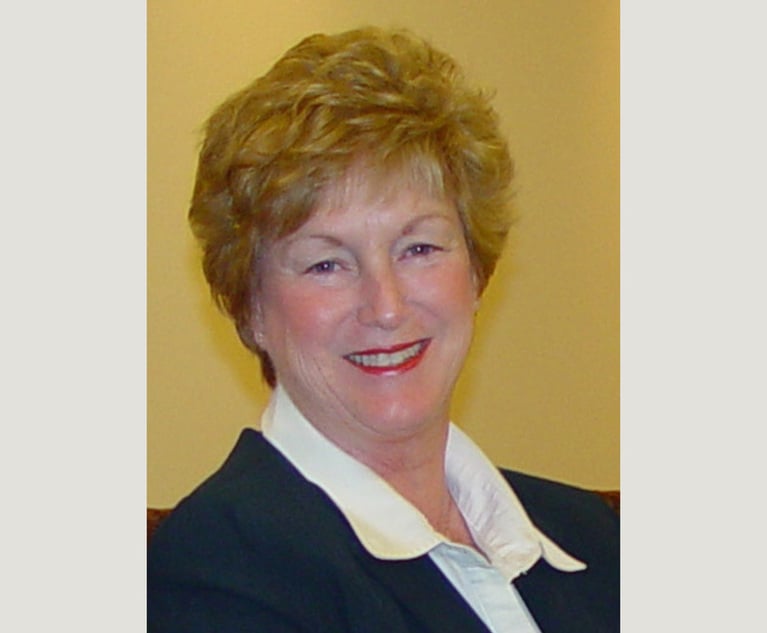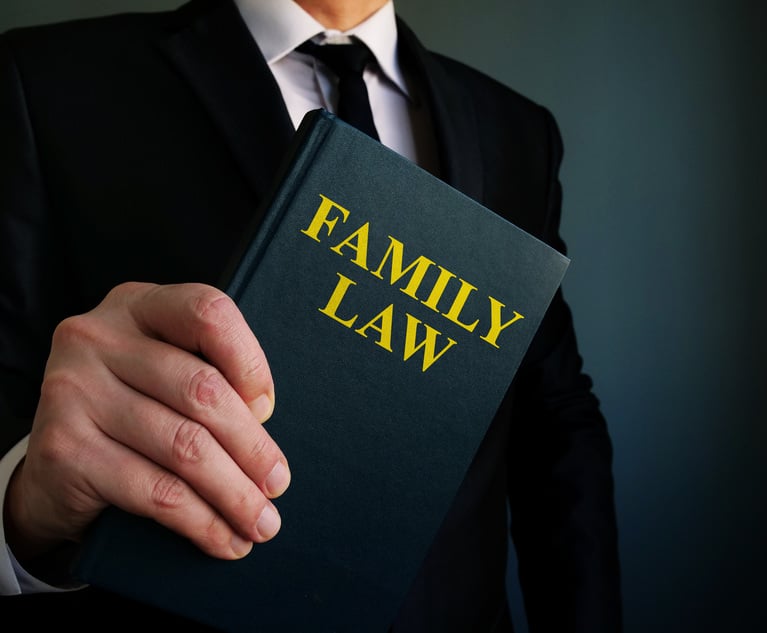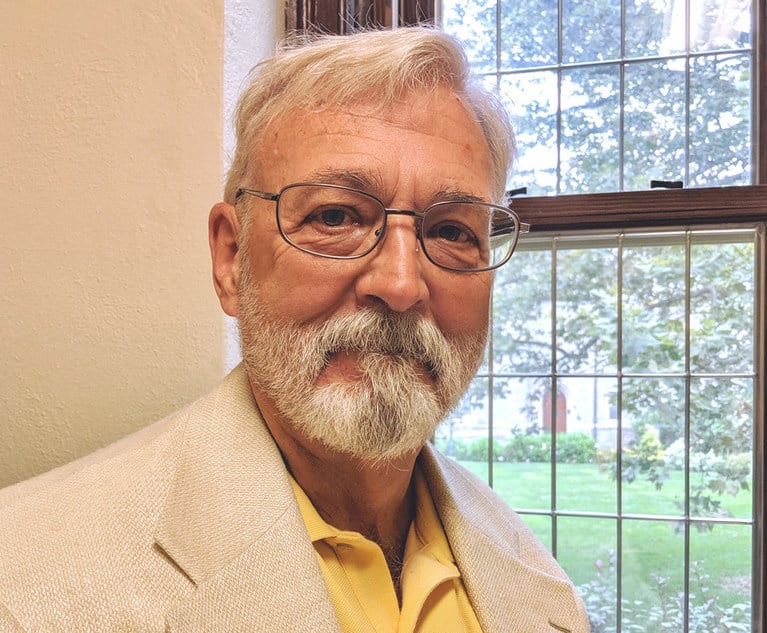 Robert Mueller. Photo: White House/Pete Souza
Robert Mueller. Photo: White House/Pete Souza Is It OK to Represent Foreign Governments Charged in Mueller Probe?
Is it ethical for lawyers to try to undermine American institutions on behalf of a client?
January 11, 2019 at 10:58 AM
6 minute read
The original version of this story was published on New York Law Journal
Can lawyers represent hostile governments that have been charged in the Mueller probe?
The obvious answer to this question is yes. Even the most despised client deserves representation. This is especially true in criminal cases. The ethical rules make it clear that lawyers are not morally accountable for the actions of their clients. This is so that even unpopular litigants can find representation. But the question is more complicated when the client is an individual or entity controlled by a hostile foreign government.
The Mueller investigation has highlighted some of the potential problems for lawyers who choose to represent hostile foreign governments or individuals and entities connected with those governments.
A court recently scolded lawyers from Reed Smith for their conduct in representing Concord Management and Consulting LLC, a Russian consulting firm indicted by Special Counsel Robert Mueller. In the course of defending their client, the lawyers attacked the special counsel, the media and the court. The court, echoed by the press and other observers, criticized the lawyers as both unprofessional and ineffective. The court and critics may be right that this strategy is ineffective if Concord's goal is to minimize criminal exposure.
But Concord is unlikely to suffer the consequences of the criminal case. Certainly, no individual connected with the company will end up in court. It's hard to know what the client has instructed its lawyers. Concord may, however, have no interest in “winning” the case. The sole interest may be in using the criminal case to destabilize American institutions. If that is the client's goal then the lawyers may, in fact, have been quite effective.
But assuming that is the case, is it ethical for lawyers to try to undermine American institutions on behalf of a client? In the Chicago 7 trial in 1969, William Kunstler and Leonard Weinglass represented defendants accused of inciting riots in connection with anti-Vietnam war protests.
During the course of the trial, some of the lawyers and clients tried to disrupt the proceedings, using the trial as a means of political protest. The goal was, in part, to criticize and mock American institutions to promote change. Most lawyers and ethics experts would say that this kind of behavior was permissible. The Chicago 7 had a lawful goal and the lawyers helped their clients achieve it.
But the Concord case is, at least arguably, different. Unlike the Chicago 7, Concord is a foreign client whose goal is not to promote a competing vision for America as a means to improve the country and help it live up to its aspirations. Its goal may be to use the court proceedings to undermine American interests by destabilizing its institutions.
Every lawyer takes an oath to uphold the American constitution. Given that oath, a client's goal to undermine the American legal system may not be a legitimate one, and the lawyers are not free as they would normally be to help their client pursue it. Even if the goal is lawful, it is at the very least problematic since lawyers are supposed to promote not undermine the administration of justice.
Lawyers have represented accused terrorists who choose not to legitimate the proceedings by refusing to participate and no one doubts the propriety of those lawyers' conduct. But that is different from actively assisting a client who faces no criminal consequences in a sustained effort to sow discord in the American courts.
In other cases related to the Mueller investigation, lawyers have been involved in representing foreign entities. Lawyers from Skadden, Arps, Meagher, Slate & Flom, for instance, produced a report that was used to help support the prosecution of Yulia Tymoshenko, the political opponent of the Ukraine's then pro-Russia president Viktor Yanukovych. The firm reportedly expressed reservations prior to issuing the report, stating in an email that there is virtually no evidence that Tymoshenko possessed the necessary criminal intent. Based on the information in the public record, this report seems ethically dubious.
To lend your professional reputation to what seems by all accounts a purely political foreign prosecution of an innocent person could be seen as assisting in criminal or fraudulent conduct. Even if the client's conduct is not illegal, it is certainly problematic for a lawyer to assist a country in undermining rather than promoting justice.
There are other cases, no doubt, in which lawyers are ethically representing the interests of hostile foreign countries, entities, and individuals. But these lawyers ought to be careful because their clients' interests may reach beyond the individual representation. They may be seeking to use their lawyers to pursue unlawful or ethically problematic goals. In any representation, there is a risk that a client may manipulate the lawyer, using the lawyer for nefarious ends. But this risk is greater when the country is hostile to our own. There are landmines that the lawyers must avoid. Mueller apparently referred the lawyers from Skadden to the US Attorney's office in Manhattan for further investigation.
Even if no lawyer is charged in connection with that case, they are closer to criminal exposure than any lawyer ought to be. Remaining ignorant about their clients' broader purposes won't necessarily save lawyers in this context so they ought to be diligent and careful to avoid these potential pitfalls.
The American democratic system is under attack on multiple fronts. This attack has highlighted the importance of the rule of law, independent courts and the professionals who uphold these legal institutions. In this climate, lawyers should be particularly careful not to betray this critical role.
Rebecca Roiphe is a New York Law School professor who teaches professional ethics and criminal law. She is a former prosecutor in the Manhattan DA's office and an expert on legal ethics.
This content has been archived. It is available through our partners, LexisNexis® and Bloomberg Law.
To view this content, please continue to their sites.
Not a Lexis Subscriber?
Subscribe Now
Not a Bloomberg Law Subscriber?
Subscribe Now
NOT FOR REPRINT
© 2024 ALM Global, LLC, All Rights Reserved. Request academic re-use from www.copyright.com. All other uses, submit a request to [email protected]. For more information visit Asset & Logo Licensing.
You Might Like
View All


Deviation From Shared Custody Guidelines Requires More Than Common Sense
5 minute readTrending Stories
- 1Former McCarter & English Associate Fired Over 'Gangsta Rap' LinkedIn Post Sues Over Discrimination, Retaliation
- 2First-of-Its-Kind Parkinson’s Patch at Center of Fight Over FDA Approval of Generic Version
- 3The end of the 'Rust' criminal case against Alec Baldwin may unlock a civil lawsuit
- 4Solana Labs Co-Founder Allegedly Pocketed Ex-Wife’s ‘Millions of Dollars’ of Crypto Gains
- 5What We Heard From Litigation Leaders This Year
Who Got The Work
Michael G. Bongiorno, Andrew Scott Dulberg and Elizabeth E. Driscoll from Wilmer Cutler Pickering Hale and Dorr have stepped in to represent Symbotic Inc., an A.I.-enabled technology platform that focuses on increasing supply chain efficiency, and other defendants in a pending shareholder derivative lawsuit. The case, filed Oct. 2 in Massachusetts District Court by the Brown Law Firm on behalf of Stephen Austen, accuses certain officers and directors of misleading investors in regard to Symbotic's potential for margin growth by failing to disclose that the company was not equipped to timely deploy its systems or manage expenses through project delays. The case, assigned to U.S. District Judge Nathaniel M. Gorton, is 1:24-cv-12522, Austen v. Cohen et al.
Who Got The Work
Edmund Polubinski and Marie Killmond of Davis Polk & Wardwell have entered appearances for data platform software development company MongoDB and other defendants in a pending shareholder derivative lawsuit. The action, filed Oct. 7 in New York Southern District Court by the Brown Law Firm, accuses the company's directors and/or officers of falsely expressing confidence in the company’s restructuring of its sales incentive plan and downplaying the severity of decreases in its upfront commitments. The case is 1:24-cv-07594, Roy v. Ittycheria et al.
Who Got The Work
Amy O. Bruchs and Kurt F. Ellison of Michael Best & Friedrich have entered appearances for Epic Systems Corp. in a pending employment discrimination lawsuit. The suit was filed Sept. 7 in Wisconsin Western District Court by Levine Eisberner LLC and Siri & Glimstad on behalf of a project manager who claims that he was wrongfully terminated after applying for a religious exemption to the defendant's COVID-19 vaccine mandate. The case, assigned to U.S. Magistrate Judge Anita Marie Boor, is 3:24-cv-00630, Secker, Nathan v. Epic Systems Corporation.
Who Got The Work
David X. Sullivan, Thomas J. Finn and Gregory A. Hall from McCarter & English have entered appearances for Sunrun Installation Services in a pending civil rights lawsuit. The complaint was filed Sept. 4 in Connecticut District Court by attorney Robert M. Berke on behalf of former employee George Edward Steins, who was arrested and charged with employing an unregistered home improvement salesperson. The complaint alleges that had Sunrun informed the Connecticut Department of Consumer Protection that the plaintiff's employment had ended in 2017 and that he no longer held Sunrun's home improvement contractor license, he would not have been hit with charges, which were dismissed in May 2024. The case, assigned to U.S. District Judge Jeffrey A. Meyer, is 3:24-cv-01423, Steins v. Sunrun, Inc. et al.
Who Got The Work
Greenberg Traurig shareholder Joshua L. Raskin has entered an appearance for boohoo.com UK Ltd. in a pending patent infringement lawsuit. The suit, filed Sept. 3 in Texas Eastern District Court by Rozier Hardt McDonough on behalf of Alto Dynamics, asserts five patents related to an online shopping platform. The case, assigned to U.S. District Judge Rodney Gilstrap, is 2:24-cv-00719, Alto Dynamics, LLC v. boohoo.com UK Limited.
Featured Firms
Law Offices of Gary Martin Hays & Associates, P.C.
(470) 294-1674
Law Offices of Mark E. Salomone
(857) 444-6468
Smith & Hassler
(713) 739-1250











